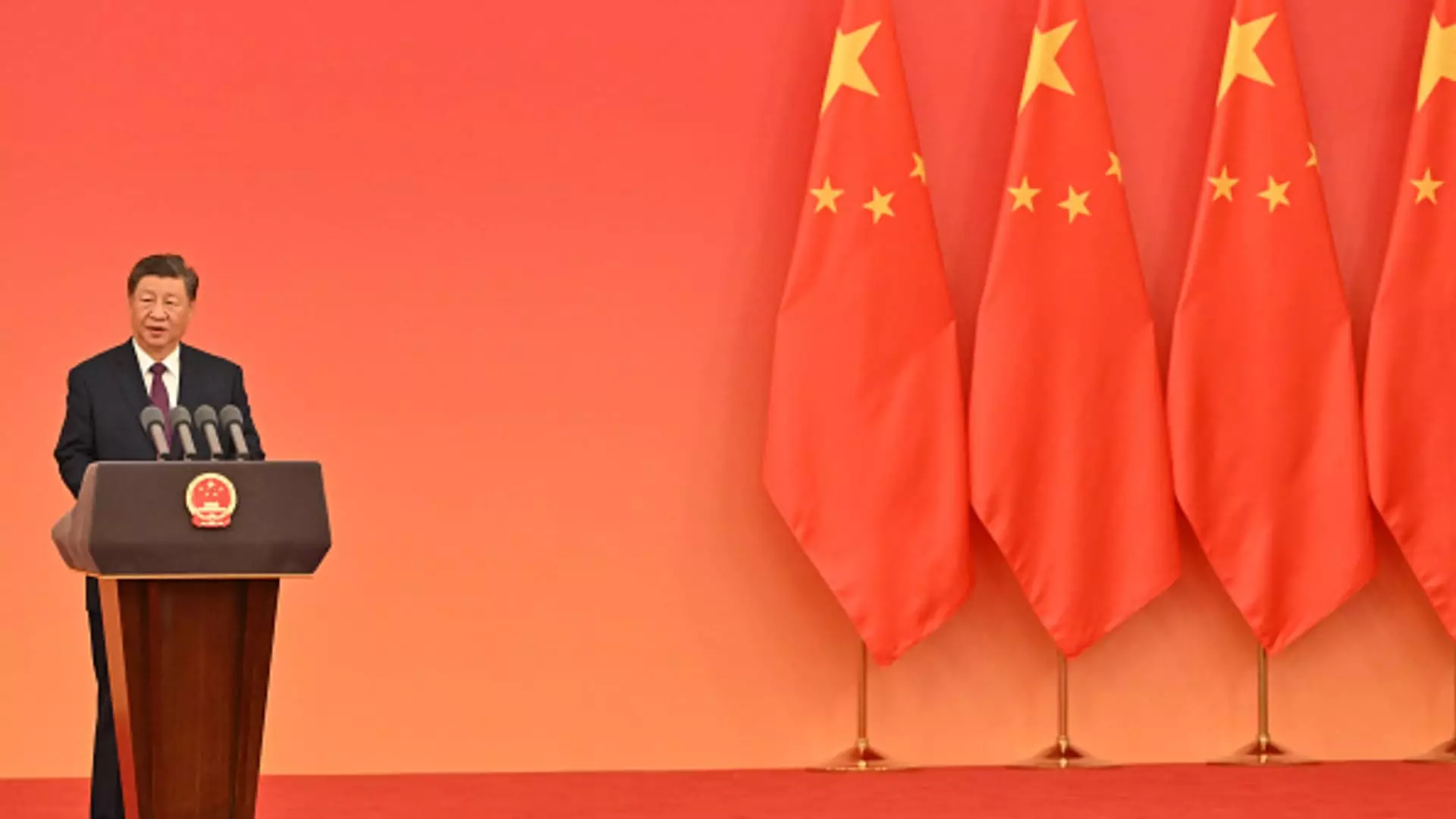As China celebrates its 75th anniversary of the establishment of the People’s Republic, President Xi Jinping’s recent remarks stand as a testament to the nation’s enduring sense of identity and ambition. The founding of the Republic on October 1, 1949, not only marked a pivotal shift in Chinese governance but also forged a narrative of nationalism that continues to shape contemporary policies and international relations. In his address, Xi laid out an unwavering resolve to pursue what he termed “national rejuvenation,” firmly linking this ambition to the unification of Taiwan with the mainland—a goal perceived as an historical inevitability by Beijing.
The emphasis on Taiwan is not merely political but deeply psychological, rooted in China’s long-standing view of the island as an integral part of its territory. This perspective has evolved into a cornerstone of Xi’s governance, creating a complex interplay between national pride and international diplomacy. Xi’s insistence on reinforcing Beijing’s opposition to any form of Taiwan separatism underscores a critical narrative that seeks to unify the Chinese populace under a singular national identity, thus reinforcing the Communist Party’s leadership as essential for this objective.
However, as President Xi acknowledged, the road ahead is fraught with challenges. China’s relationship with Western powers, particularly the United States and nations in Europe, has been increasingly contentious. Tariffs and restrictions aimed at curbing China’s access to advanced technologies reflect broader geopolitical tensions that complicate the narrative of a resurgent nation. Rather than confronting these nations directly, Xi’s rhetoric remained focused on a broader vision of globalization, positioning China as a defender of open markets while subtly underscoring the need for unity against external pressures.
This strategic evasion not only encapsulates the complex nature of China’s international relations but also highlights a crucial aspect of Xi’s leadership style: framing challenges as opportunities for internal solidarity and growth. The President’s call for economic and cultural cooperation between the mainland and Taiwan suggests an understanding that compromise and dialogue are essential for achieving a harmonious reunification, albeit under the auspices of the Communist Party’s overarching control.
Domestic Stability and Economic Policy
Internally, Xi’s references to supporting economic growth in Hong Kong and Macao indicate a vital recognition of the need to stabilize these regions amidst rising discontent and economic uncertainty. Recent surges in Chinese stock markets signal a momentary recovery, which aligns with government efforts to rejuvenate economic momentum through targeted interventions. The call for revitalizing the real estate sector and bolstering fiscal and monetary policies illustrates a proactive approach to addressing systemic challenges. The People’s Bank of China’s rate cuts may provide short-term relief, but long-term economic resilience will depend on more comprehensive reforms and support mechanisms.
The backdrop of these economic endeavors is essential, as they foster a sense of hope among the populace. By framing economic growth as part of the “national rejuvenation” narrative, Xi is attempting to consolidate public support. However, the sustainability of this growth amidst mounting international scrutiny remains a pertinent question as the world watches Beijing’s every move in the arena of global economics.
President Xi Jinping’s assertive vision for China’s future encompasses an intricate tapestry of nationalism, economic strategy, and geopolitical positioning. As the nation navigates these multi-faceted challenges, the overarching theme of unity emerges as both a rallying cry for domestic support and a guiding principle for international engagement. The dynamics of this journey will undoubtedly involve navigating not only external conflicts but also internal disparities, as Beijing seeks to harmonize its populist aspirations with the realities of a rapidly changing world.
The next chapter in China’s narrative remains unwritten. With the foundation of its historical claims and a commitment to navigating contemporary challenges, the ongoing journey towards national rejuvenation is fraught with complexities yet propelled by a collective vision of progress. Thus, as echoed by Xi’s unwavering rhetoric, it seems that no challenge will deter China from its determined path forward.

